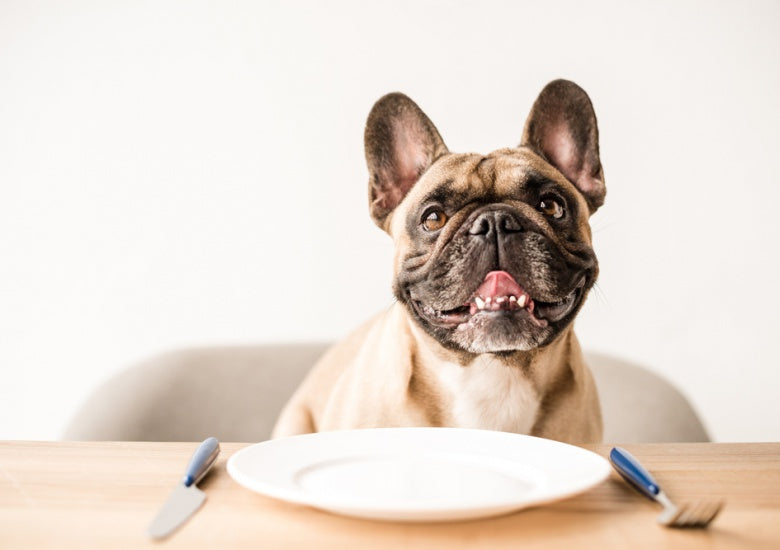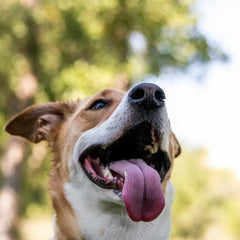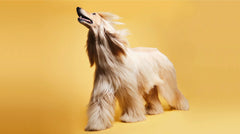In households across the UK, dog owners often ponder whether sharing a bit of their meal with their furry friend is safe. Here, we delineate which human foods are safe for dogs, the ones to avoid, and other essential considerations to keep in mind when sharing your food with your dog.
Safe Foods
Understanding which human foods are safe for your dog can ensure their well-being while allowing them to enjoy a variety of tastes.
Fruits and Vegetables
- Apples: Rich in vitamins A and C, they are safe for dogs but ensure to remove the seeds and core.
- Carrots: These are low in calories and high in fibre and vitamins.
Meat and Dairy
- Chicken: Cooked chicken is a great source of protein for dogs.
- Yoghurt: It contains beneficial bacteria that can be good for your dog’s digestive system; however, ensure it is non-sweetened and without artificial additives.
Foods to Avoid
Some human foods can be dangerous for your dog and should be strictly avoided to prevent health issues.
Toxic Foods
- Chocolate: It contains substances that are toxic to dogs, leading to poisoning.
- Grapes and Raisins: These can cause kidney failure in dogs, although the exact substance causing toxicity is unknown.
Harmful Ingredients
- Xylitol: This artificial sweetener is found in many products and is extremely toxic to dogs.
- Onions and Garlic: These can cause blood cell damage in dogs, leading to anaemia.
Quantity Matters
Even safe foods should be given in moderation to prevent adverse effects.
Caloric Intake
- Obesity: Overfeeding can lead to obesity, a prevalent issue in dogs in the UK.
- Nutritional Imbalance: Excessive human food can result in a nutritional imbalance in your dog’s diet.
Portion Control
- Small Treats: Offer human food as small treats, not as a substitute for their regular diet.
- Infrequent: Make human food an infrequent treat to maintain the health of your dog.
Allergic Reactions
Like humans, dogs can also be allergic to certain foods, and it is crucial to recognise and manage these allergies effectively.
Identifying Allergies
- Symptoms: Allergic reactions may manifest as skin irritations, digestive issues, or respiratory distress.
- Trial and Error: Sometimes, identifying the allergen can be a process of trial and error.
Managing Allergies
- Vet Consultation: If you suspect an allergic reaction, consult your vet immediately.
- Hydrolysed Protein Diet: Your vet might recommend a hydrolysed protein diet to manage allergies.
Consulting Your Vet
When in doubt, always consult your vet for personalised advice on feeding human foods to your dog.
Dietary Consultation
- Dietary Plans: Your vet can help in creating dietary plans that incorporate safe human foods.
- Nutritional Requirements: Understanding the nutritional requirements of your dog is vital, and a vet can offer guidance in this regard.
Emergency Situations
- Poisoning: In cases of poisoning, immediate vet consultation is essential.
- Emergency Contacts: Keep emergency vet contacts handy for quick assistance.
FAQs
Q: Can dogs eat fruits such as bananas?
A: Yes, bananas are safe for dogs but should be given in moderation due to high sugar content.
Q: What should I do if my dog consumes a large quantity of chocolate?
A: Contact your vet immediately as it can be a medical emergency.
Q: Can dogs be lactose intolerant?
A: Yes, some dogs can be lactose intolerant, so introduce dairy products slowly and observe for any adverse reactions.
Conclusion
While there are several human foods that are safe for dogs, it is pivotal to be discerning in what you share with your furry friend. Adhering to the guidelines on the safe foods and the ones to avoid can ensure the wellbeing of your pet. Moreover, being conscious of the quantity and being vigilant about allergic reactions are vital aspects of sharing human foods with dogs. Always remember to consult your vet for personalised guidance, ensuring a happy and healthy life for your dog in the UK.




